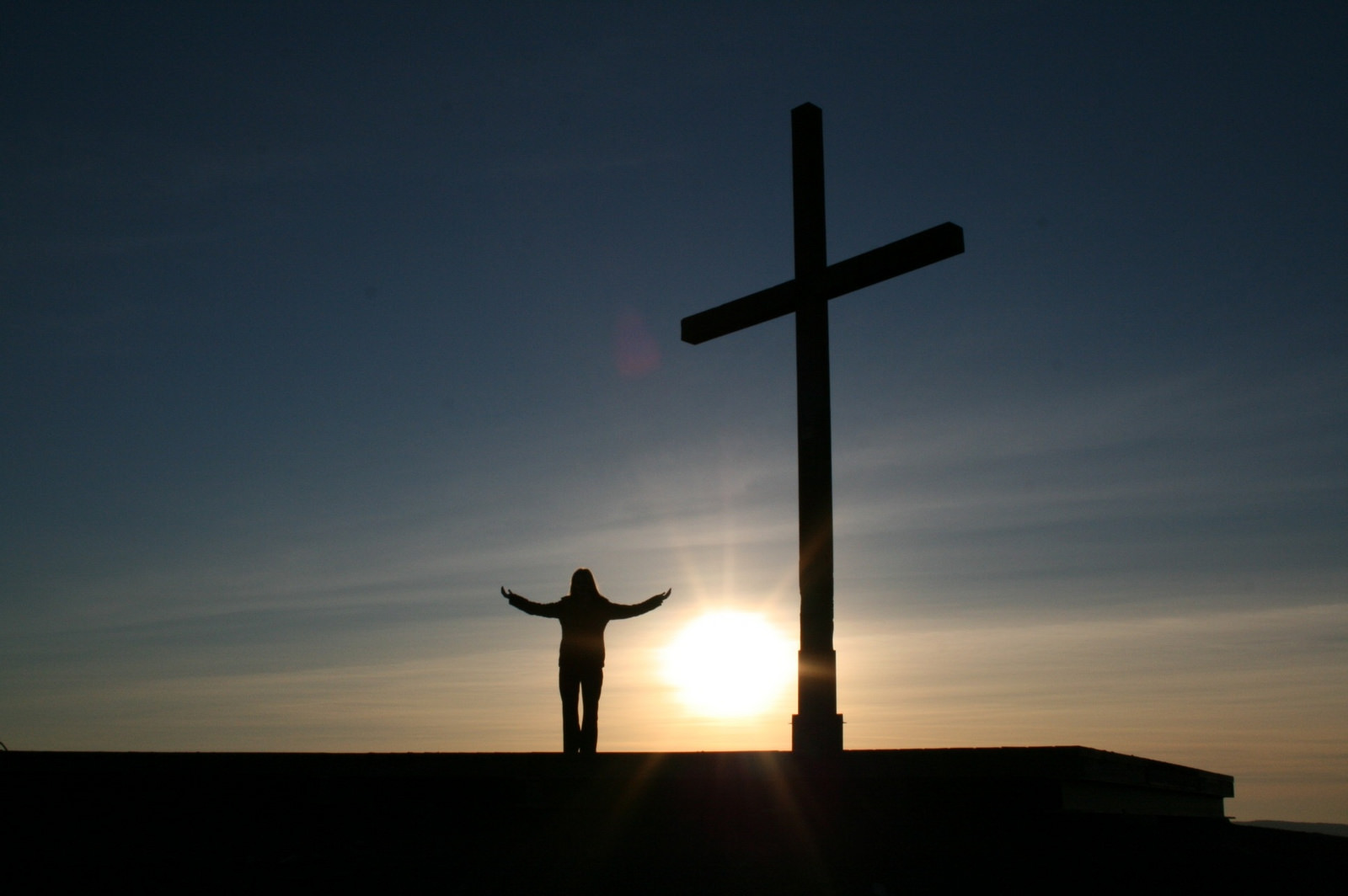Revised Common Lectionary Reflection, Sixteenth Sunday after Pentecost, Proper 18, Year B
September 9, 2018
Lessons: Isaiah 35:4-7a; Psalm 146; James 2:1-17; Mark 7:24-37
Theme: God’s faithful and generous people remain open to possibility, bold in their faith, and tenacious in stewarding and sharing the gospel.
Key Scripture: “Then looking up to heaven, [Jesus] sighed and said to him, “Ephphatha,” that is, “Be opened.” Mark 7:34
Preaching/Teaching Reflection
This week’s two stories of healing from Mark’s gospel are among my favorites, and they provide such rich food for contemplation and preaching. The accounts of the Syrophoenician woman and the deaf man remind us that the gospel is for everyone. This good news is not an insiders’ club or a righteousness round-up. This week, Jesus crosses all kinds of boundaries to include people who  were outside of the Jewish religion. Yep, that means basically most of us reading this reflection today. These are some of our inclusion stories, where we were invited to the party (or pushed our way in boldly).
were outside of the Jewish religion. Yep, that means basically most of us reading this reflection today. These are some of our inclusion stories, where we were invited to the party (or pushed our way in boldly).
It’s always helpful to take a wider look at the stories surrounding weekly lections, but this week’s gospel particularly benefits from some context. Jesus calls his disciples in the first chapter (vv. 16-20) and takes right off on a teaching and healing tour of Galilee. In chapter six he feeds the 5,000+ folks and engages the Pharisees about what contaminates one’s life. It’s not what goes in one’s mouth; it’s what comes from within, from one’s heart, he reminds them.
On the heels of this pronouncement Jesus crosses the border into Gentile territory—sure to come into contact with unclean folks—and takes refuge in a house in Tyre. Sure enough, here comes the first unclean encounter in the form of a Gentile woman seeking healing for her daughter. This persistent mother doesn’t bother with decorum or law or boundaries: She flings herself at Jesus’ feet and begs for healing on behalf of her child.
What happens next is shocking. Jesus, who has just explained clean vs. unclean, talks the company line with this bold woman. He even refers to her as a little dog—the diminutive form even more shameful. What’s up, Jesus? Are you really doing this with a straight face? Who knows?
Some scholars believe Jesus is testing the woman while others think that Jesus is spouting off the common wisdom of the day in order to set up an unexpected and profound act of inclusion and healing. Jesus’ motivation for these words simply isn’t clear, and the gospel writer doesn’t offer any stage directions or commentary.
What we do have, however, is this bold—audacious even—faith of the outsider mother (whose name and backstory we never learn). Because of love, she will do anything to advocate for her little daughter, even crossing all the boundaries and obliterating cultural norms. This, my friends, is the focal point of the story. A bold, wild, and radical faith is what’s needed to follow Jesus. This is faith with legs and heart and action, something we need to practice today. The result of her persistence is, of course, that her daughter is healed. Another result of this encounter is that it sends Jesus in the direction of drawing that inclusion circle ever wider as he travels deeper into Gentile territory to heal and feed and love.
 The next few verses provide another encounter, one that is more intimate and earthy as Jesus heals a deaf man with spit, touch, and word. “Ephphatha” meaning “be opened.” The deaf man’s ears are opened, and he is able to speak clearly. Jesus’ ministry gathers even more momentum and attention as he continues feeding the masses and healing the blind.
The next few verses provide another encounter, one that is more intimate and earthy as Jesus heals a deaf man with spit, touch, and word. “Ephphatha” meaning “be opened.” The deaf man’s ears are opened, and he is able to speak clearly. Jesus’ ministry gathers even more momentum and attention as he continues feeding the masses and healing the blind.
The questions I’m left with in this lesson are these: What in me, what in us as people of faith, needs to be opened? Where have we become closed to “the other”? Who are the outsiders we need to welcome? How have we become so set in our ways and protective of our traditions that we cannot see the radical nature of the gospel? Are we willing to risk everything to encounter and follow Jesus? If not, if we’re not all in like this Syrophonician mother, why are we even here?
In Worship
What needs to “be opened” in your faith community? Consider using “Open Up” by The Billiance in your worship music today as part of your contemplation and exploration of this theme of “being opened.” It’s a wonderful song to use as a prayer to recommit to keeping open ears, eyes, and hearts—to be bold disciples. Here’s a lovely Youtube version. Access the lyrics here. Order the digital songbook here.
With Youth
How about a deep discussion of the epistle lesson from James? How do youth feel about the statement “Faith without works is dead”? We are, after all, saved not by our own doing or works, so how do we faithfully understand and incorporate James’ instructions and observations? Invite youth to come up with some ideas of how they can “enliven” their faith through action. Choose at least one to implement.
With Children
This week’s focus verse is Mark 7:34: “Then looking up to heaven, [Jesus] sighed and said to him, “Ephphatha,” that is, “Be opened.”
One little word makes a big difference! Tell the children the story about Jesus healing the deaf man and giving him back both his hearing and his voice. Give each child a business size card with Ephphatha on one side and “Be opened!” on the other side. Ask the children what kind of noise keeps them from hearing clearly. They may say traffic, radio, headphones, lawnmower, or other things. Tell the children that Jesus wants us to be able to hear today and to share the good news using our voices. Remind them that sometimes being open to Jesus means being silent and listening for his voice or hearing scripture in worship. Finish with a simple prayer and challenge them to learn this word and teach it to others.
Weekly Stewardship Bulletin Insert
Jesus commands the deaf man’s hearing to return by saying Ephphatha! This command also applies to Christians today and to our stewardship of the gospel. Spend some time thinking about our congregation’s ministries and your own discipleship. How many of our ministries and how much of our mission is focused outwardly toward the world? How much of your time, energy, and resources are directed toward inviting others to encounter Jesus? Do you need to do anything differently? If so, listen for Jesus to guide you.
Stewardship at Home
We live in a fearful and anxious time. Pastor and author Adam Hamilton surveyed his congregation and found that 80% of those who responded lived with moderate to severe levels of fear. Consider reading Hamilton’s book, Unafraid: Living with Courage and Hope in Uncertain Times, and ponder this week’s Old Testament passage (Isaiah 35:4-7a). Fear prevent us from living fully the life that God desires for us, and it can make us ineffective stewards, too. Pray for God to give you courage and peace—enough for every day.
If you have young children, consider reading It Will Be Okay: Trusting God Through Fear and Change by New York Times best-selling author Lysa TerKeurst.
Here’s a look back at our 2015 Lectionary Reflection: https://www.stewardshipoflife.org/2015/09/go-in-peace-and-then-do-something/
And here’s the 2012 Lectionary Reflection: https://www.stewardshipoflife.org/2012/09/the-one-hundred-percent/
Photos: Brett Streuker, Jean Drouais, and derekmswanson, Creative Commons usage license. Thanks!
Note: Reprint rights granted to congregations and other church organizations for local, nonprofit use. Just include this note: “Copyright (c) 2018, Rev. Sharron Blezard. Used by Permission.” Other uses, please inquire: thewritelife@hotmail.com.




Leave a Reply